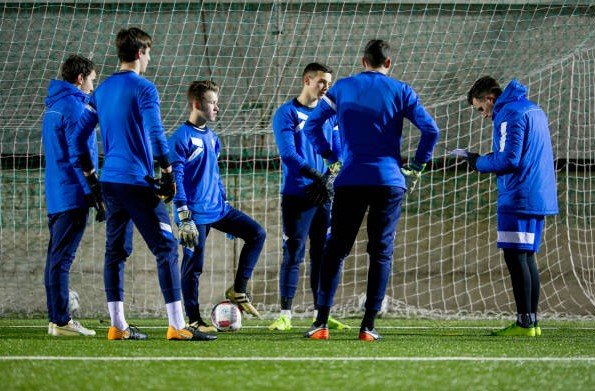Italian soccer coaches have urged UEFA and FIFA to suspend Israel from international competitions due to the ongoing war in Gaza. This call, led by the Italian Coaches Association, comes ahead of key World Cup qualifiers and highlights growing concerns over humanitarian issues in sports.
Background on the Coaches’ Demand
A group of prominent Italian soccer coaches sent a formal letter to the Italian Soccer Federation president, pushing for Israel’s temporary exclusion from global football events. The request was made public just days ago, amid escalating tensions in the Middle East.
This move follows months of debate in the sports world about fairness and ethics in international play. Coaches argue that the situation in Gaza demands action, similar to past suspensions of other nations during conflicts.
The letter points to the deaths of hundreds of Palestinian athletes and the destruction of sports facilities as key factors. It also references global outrage and calls for consistency in how governing bodies handle such crises.
Reasons Behind the Call for Suspension
The coaches cite Israel’s military actions in Gaza as a violation of international norms that should bar participation in FIFA and UEFA events. They describe it as a moral duty to respond, especially with reports of over 40,000 civilian deaths since the conflict intensified in late 2023.
Key points raised in their statement include:
- The killing of more than 500 Palestinian sports figures, including players and coaches.
- Destruction of stadiums and training grounds, halting local sports development.
- Comparisons to Russia’s swift ban from competitions after its invasion of Ukraine in 2022.
These elements, they say, create an uneven playing field and ignore humanitarian principles outlined in FIFA’s statutes.

In addition, the coaches highlight how the war has disrupted Palestinian football, with teams unable to train or compete safely. This has led to broader discussions on whether sports bodies should enforce stricter ethical guidelines.
Reactions from the Football Community
Responses to the demand have been mixed but vocal across Europe and beyond. Some Italian players and fans support the move, seeing it as a stand against injustice, while others worry it could politicize the game.
International figures, including former coaches and activists, have echoed the call on social media platforms. Posts on X (formerly Twitter) show widespread sentiment urging FIFA and UEFA to act, with many drawing parallels to historical boycotts.
FIFA and UEFA have not yet issued official statements, but insiders suggest internal reviews are underway. Past precedents, like the exclusion of apartheid-era South Africa from global sports in the 1970s and 1980s, are being referenced in debates.
One coach involved stated that ignoring the issue would set a dangerous example for future conflicts. This has sparked conversations in football circles about the role of sports in promoting peace.
The Italian federation has acknowledged the letter and promised to discuss it at upcoming meetings. Meanwhile, protests and petitions continue to gain traction online.
Potential Impact on Upcoming Matches
If the suspension happens, it could reshape World Cup qualifiers set for late 2025 and early 2026. Italy is scheduled to face Israel in crucial games, which might be canceled or reassigned.
Here’s a quick look at affected events:
| Event | Date | Potential Changes |
|---|---|---|
| Nations League Matches | September 2025 | Possible forfeiture or neutral venue shifts |
| World Cup Qualifiers | October-November 2025 | Requalification rounds without Israel |
| European Club Competitions | Ongoing 2025-2026 | Israeli teams barred from participation |
This table shows how a ban could ripple through schedules, affecting rankings and fan experiences.
Experts predict legal challenges if FIFA acts, but supporters argue it’s essential for maintaining the sport’s integrity.
Broader Context in Sports and Politics
The demand ties into a larger pattern of sports intersecting with global politics. Recent years have seen similar actions, such as the International Olympic Committee’s decisions on Russian and Belarusian athletes amid the Ukraine war.
In Gaza, the conflict has claimed lives and infrastructure, with UN reports estimating billions in damages. Football has been hit hard, with the Palestinian national team facing travel restrictions and safety fears.
Advocates say suspending Israel would pressure for peace talks, much like how sports bans influenced change in other regions. Critics, however, claim it unfairly targets one side and could deepen divisions.
This situation also reflects growing activism in European football, where players and coaches increasingly speak out on social issues.
What Happens Next and Why It Matters
FIFA’s council is expected to meet soon, where this issue might top the agenda. Observers note that public pressure could sway decisions, given football’s massive global audience.
For fans and players, this debate underscores how sports can amplify calls for justice. It reminds us that games on the field often mirror struggles off it.
Share your thoughts in the comments below: Do you think Israel should be suspended? Spread the word if this story resonates with you.








